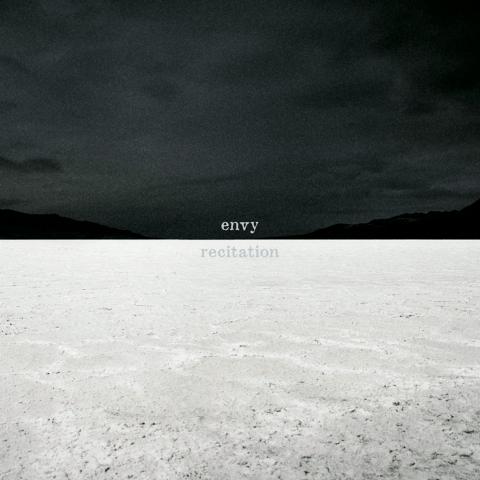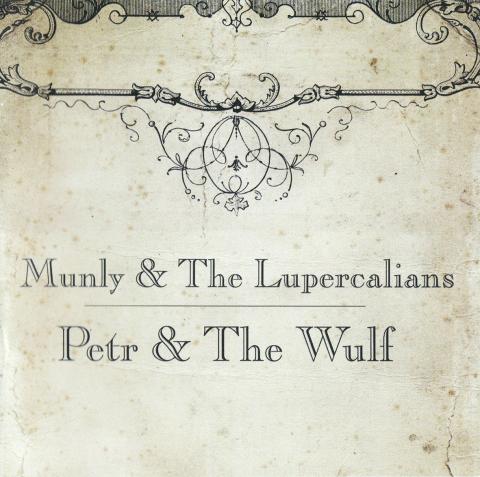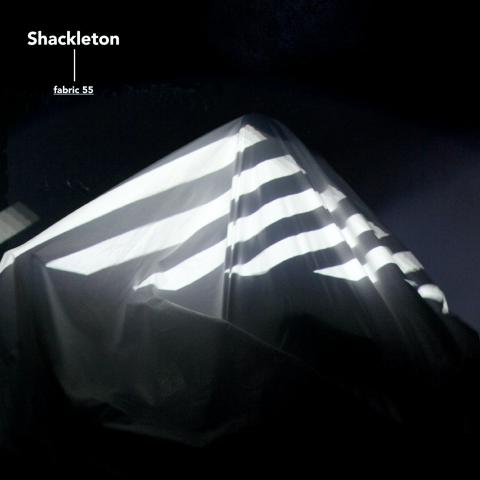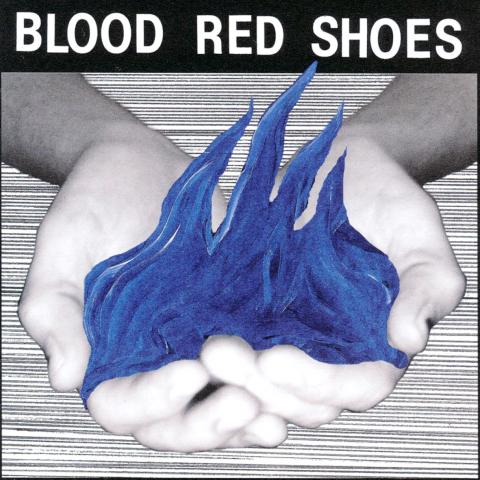Though originally a hardcore/screamo act, Japan’s Envy continues to evolve. Post-rock is perhaps a better starting point from which to begin talking about the band’s current music — not surprising given the fact they are signed to Mogwai’s label, Rock Action Records.
Recitations, the band’s latest offering, runs the gamut from folky acoustic-guitar driven moments of reflection one might expect to find on an alt-country release, to the now standard, heavily delayed sparkling guitar build up to a proper pummeling, here punctuated by vocalist Tetsuya Fukagawa’s gritty screams.
Although the band does often find occasion to weave such disparate elements together into a single song, it is equally comfortable setting them down side by side as individual pieces. The album’s opening track, Guidance, for instance, is three and a half minutes of gentle, ambient atmospherics, atop which a female voice reads a spoken word piece. Dreams Coming to an End, on the other hand, is a fast-paced straightforward screamer that calls to mind the band’s punkier roots. This is juxtaposed with the album’s very next track, the instrumental piece Incomplete, which features a pair of acoustic guitars, completely unadorned, working their way through a simple, delicately plucked chord progression.

Envy is now best-known, however, for the epic sweep of its haunting post-rock, the quality of which few peers can match. The band’s transitions between light and heavy are effortless, conveying a freshness now rarely seen in a genre that has become bogged down by its own deliberateness.
Recitations may be just the remedy for those experiencing post-rock burnout, a reminder that the genre can still be fertile ground.
For those not familiar with Peter and the Wolf, it is a children’s story set to orchestral music written by Sergei Prokofiev in 1936, one that has been reworked innumerable times by countless artists. Petr and the Wulf by Munly and the Lupercalians is Jay Munly’s alt-country adaptation of the work.

Munly — tall, gaunt, and burning with passion — adopts an intense on-stage persona, demanding full attention from his audiences as he guides them through a string of narratives from a hodgepodge collection of imaginary characters. On Petr and the Wulf, one hears a strain of ardent proselytizing in Munly’s quivering voice, a desire to win converts to his myriad points of view, even when his lyrics are at their most impenetrable.
And much of the lyrical content here is, indeed, rather thick in parts. As you might expect from someone who is a published author himself (he has written a book of short stories, among other things), Munly takes rather grandiose liberties with Prokofiev’s tale, using the original work merely as source material to abstract from, deconstructing the narrative into a pastiche of psychological urges, sung from the personal perspective of each of the fairy tale’s main characters.
The album’s instrumentation, which can be called alt-country with a gothic twist, is consistently tight and quirky, lending it a deranged, circus-like feel and many wonderful musical moments. The transition from Cat to Duk is truly lovely, the former ending with a pad-drone that bleeds into the beginning of the latter, before finally being set free by a craggy banjo riff and blasting tubas.

On the eerie, clambering album-closer Wulf, Munly delivers the wolf’s lengthy manifesto via spoken word, while the song’s sung chorus sums up the wolf’s sentiments more succinctly:
You blame me for the future
You blame me for the past

You blame me for the plenty which
you never can make last
I might as well commit the sins as for being blamed for them!
London’s Fabric is widely considered to be one of the top nightclubs around, attracting top-notch electronic musicians from all over the world. Shackleton is one such artist, and his latest release, Fabric 55, is meant to approximate the feeling of the dubstep sets Shackleton spins in the club. It is the 55th release in the Fabric series, but only the fourth entirely comprising the artist’s own work.
Dark, off-kilter, and slightly disturbing — even at its most danceable moments — the album plots a course through a multitude of atmospheres, with the seed of the next song buried deep within the current, its textures and themes blossoming all-around in unexpected places.
Shackleton largely eschews traditional beat structures in favor of more elaborate patterns, beneath which he buries huge basslines, and above which he sculpts intense ambient textures, while manipulated sound bites from self-help tapes and other sources act as a sort of thematic glue to hold Fabric 55 together.
On Negative Thoughts, for instance, a voice gives instructions on how to deal with negativity: “Whenever a negative thought enters your mind, you acknowledge it/And then you remove it from your world.” Decontextualized, the snippet reflects the unnerving sense of paranoia running through the entire record in the form of dark, creaking soundscapes and unexpected twists and turns.
Because Fabric 55 is derived from a vast collection of unreleased material Shackleton has stockpiled over the years, the record is far more dynamic than your standard mix album, and is a true treat for fans of the dubstep genre.
There is something undeniably American about the British rock duo Blood Red Shoes. From the opening chords of Don’t Ask, the first track off the band’s second full-length release, Fire Like This, and onward to the end the record, one hears the unmistakable angular grit of American indie-rock — and little else.
Light It Up, the second track, begins with a lazy, cocky Pavement-esque riff that then explodes into a Nirvana-style scream-along chorus. A bridge section with scratchy, tense movements and Sonic Youth-style meandering carries the song into its final push, where it hits even harder than before.
The album is, on the whole, rather heavy (in a Nirvana rather than Metallica sense), and it is on the songs that strike a balance between cocky swagger and all-out anger that the band is at its best.
The duo takes turns on lead vocals, and while neither Laura-Mary Carter nor Steve Ansel has the sort of voice that can carry a song, they each do a fine job nonetheless.
On Keeping It Close, Carter’s voice is layered upon itself, with breathy overdubs acting as counter-point to Ansel’s infectious Doug Gillard (of Guided By Voices fame) style vocals, while molten guitars swirl below.
These days, most of the creativity in independent rock music is found in its fearless mixing and mashing up of genres. On Fire Like This, however, Blood Red Shoes show that there is still plenty of intrigue to be built within an old-fashioned, back-to-basics rock and roll number.

Taiwan has next to no political engagement in Myanmar, either with the ruling military junta nor the dozens of armed groups who’ve in the last five years taken over around two-thirds of the nation’s territory in a sprawling, patchwork civil war. But early last month, the leader of one relatively minor Burmese revolutionary faction, General Nerdah Bomya, who is also an alleged war criminal, made a low key visit to Taipei, where he met with a member of President William Lai’s (賴清德) staff, a retired Taiwanese military official and several academics. “I feel like Taiwan is a good example of

March 2 to March 8 Gunfire rang out along the shore of the frontline island of Lieyu (烈嶼) on a foggy afternoon on March 7, 1987. By the time it was over, about 20 unarmed Vietnamese refugees — men, women, elderly and children — were dead. They were hastily buried, followed by decades of silence. Months later, opposition politicians and journalists tried to uncover what had happened, but conflicting accounts only deepened the confusion. One version suggested that government troops had mistakenly killed their own operatives attempting to return home from Vietnam. The military maintained that the

Jacques Poissant’s suffering stopped the day he asked his daughter if it would be “cowardly to ask to be helped to die.” The retired Canadian insurance adviser was 93, and “was wasting away” after a long battle with prostate cancer. “He no longer had any zest for life,” Josee Poissant said. Last year her mother made the same choice at 96 when she realized she would not be getting out of hospital. She died surrounded by her children and their partners listening to the music she loved. “She was at peace. She sang until she went to sleep.” Josee Poissant remembers it as a beautiful

Before the last section of the round-the-island railway was electrified, one old blue train still chugged back and forth between Pingtung County’s Fangliao (枋寮) and Taitung (台東) stations once a day. It was so slow, was so hot (it had no air conditioning) and covered such a short distance, that the low fare still failed to attract many riders. This relic of the past was finally retired when the South Link Line was fully electrified on Dec. 23, 2020. A wave of nostalgia surrounded the termination of the Ordinary Train service, as these train carriages had been in use for decades